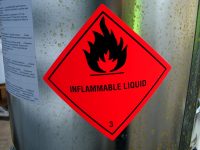Arc Flash Protection: What Does OSHA Require?
By Ana Ellington, Legal Editor A number of OSHA standards are cited in relation to arc flash hazards. The NFPA 70E national consensus standard is a comprehensive standard that contains detailed information on how to protect workers from arc flashes. Employers must consider and adopt NFPA 70E when employees work on an electrical system. NFPA […]







